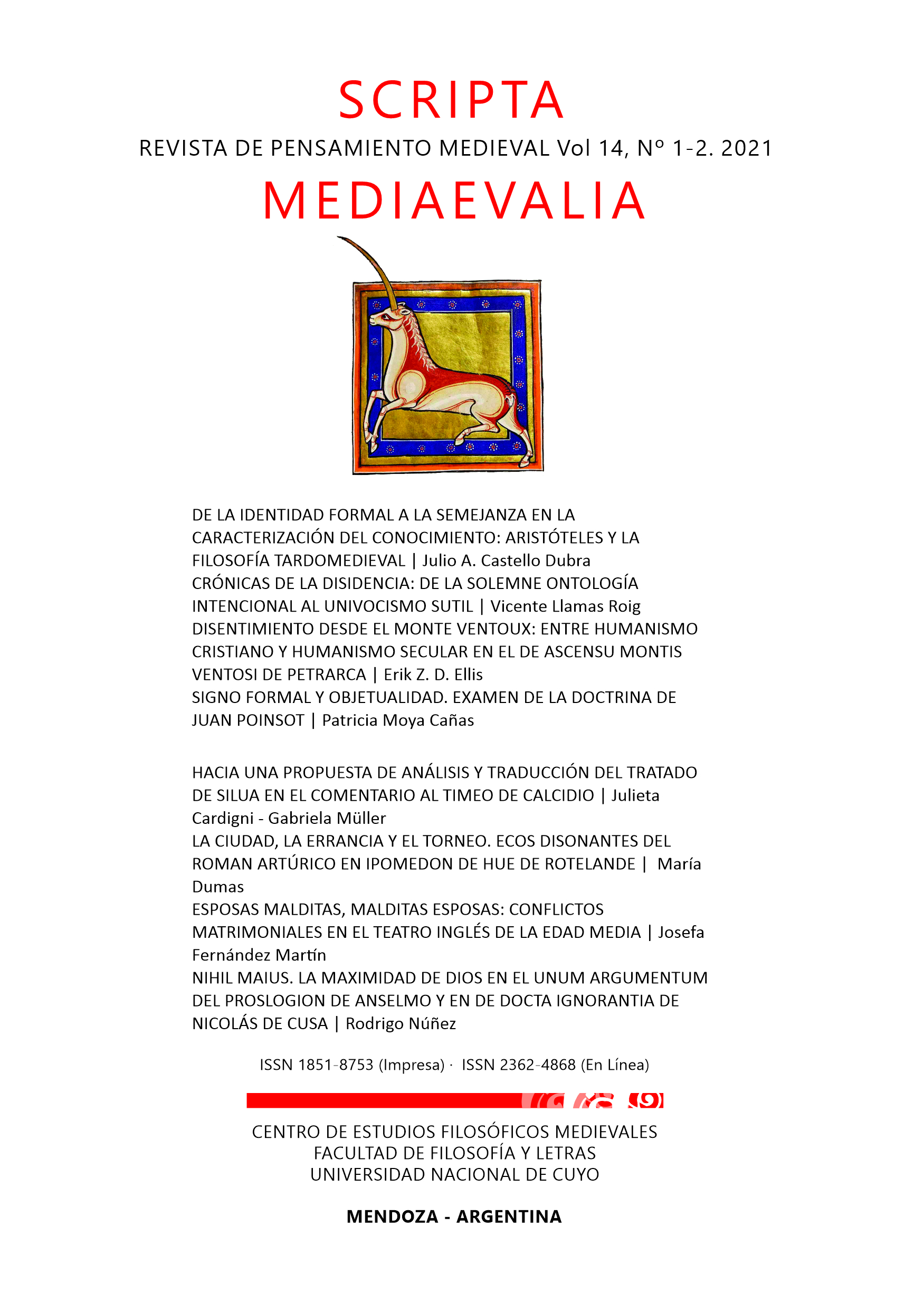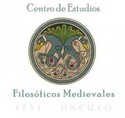Dissent from Mt. Ventoux: Between Christian and Secular Humanism in Petrarch’s de Ascensu Montis Ventosi
DOI:
https://doi.org/10.48162/rev.35.003Keywords:
Petrarch, Mt. Ventoux, Textual Reception, Modernity, HumanismAbstract
Petrarch’s letter de Ascensu Montis Ventosi has long served as the founding document of “renaissance humanism”. Since the
beginning of renaissance studies in the mid-nineteenth century, the letter has become almost a talisman for summoning the new, secular spirit of humanism that spontaneously arrived in Italy in the fourteenth century, took hold of the hearts and minds of Europeans in the fifteenth century, and led to cataclysmic cultural, religious, and political changes in the sixteenth, seventeenth, and eighteenth centuries. This reading, still common among non-specialists, especially in the English-speaking world, is overly simplistic and ignores Petrarch’s profound debt to classical and Christian tradition, obscuring the fundamentally religious character of the letter. This article examines how scholars came to assign the letter so much importance and offers an interpretation that stresses Petrarch’s continuity with tradition and his desire to revitalize rather than reinvent the traditions of Christian scholarship and contemplation.
References
Ascoli, Albert Russell and Unn Falkheid, eds. Cambridge Companion to Petrarch. Cambridge: Cambridge University Press, 2015.
Beecher, Donald. “Petrarch’s ‘Conversion’ on Mont Ventoux and the Patterns of Religious Experience”. Renaissance and Reformation / Renaissance et Réforme 28, n.° 3 (2004): 55-75.
Billanovich, Giuseppe. “Petrarca e il Ventoso”. Italia Medievale e Umanistica 9 (1966): 349-401.
Bishop, Morris. Petrarch and His World. Bloomington: University of Indiana Press, 1963.
Celenza, Christopher. The Intellectual World of the Italian Renaissance. Cambridge: Cambridge University Press, 2017.
Celenza, Christopher. Petrarch: Everywhere a Wanderer. London: Reaktion, 2017.
Bondanella, Julia Conaway and Mark Musa, eds. The Italian Renaissance Reader. New York: Penguin, 1987.
Burckhardt, Jakob. The Civilization of the Renaissance in Italy. 2.a ed., rev. New York: Phaidon, 1945.
Cassirer, Ernst, Francis R. Johnson, Paul Oskar Kristeller, Dean P. Lockwood, and Lynn Thorndike. “Some Remarks on the Question of the Originality of the Renaissance”. Journal of the History of Ideas 4, n.° 1 (1943): 49–74.
Curtright, Travis. The One Thomas More. Washington, D.C.: The Catholic University of America Press, 2013.
Dotti, Ugo. “I primi sei libri delle familiari del Petrarca”. Giornale Storico della Letteratura Italiana 150 (1973): 1- 20.
Durling, Robert M. “The Ascent of Mt. Ventoux and the Crisis of Allegory”. Italian Quarterly 69 (1974): 7-28.
Enenkel, K. A. E., Betsy de Jong-Crane, and P. Th. M. G. Liebregts, eds. Modelling the Individual: Biography and Portrait in the Renaissance. Amsterdam: Rodopi, 1998.
Falkeid, Unn. “Petrarch, Mont Ventoux and the Modern Self”. Forum Italicum 43, n.° 1 (2009): 5-28.
Gerber, Amanda. Medieval Ovid: Frame Narrative and Political Allegory. New York: Palgrave Macmillan, 2015.
Huygens, R. B. C., ed. Accessus ad auctores. Berchem- Bruxelles: Latomus, 1954.
Kirkham, Victoria and Armando Maggi, eds. Petrarch: A Critical Guide to the Complete Works. Chicago: Chicago University Press, 2009.
Knöbl, Wolfgang. “Observaciones sobre el concepto de modernidad”. Sociología Histórica 7 (2017): 167-185.
Martinelli, Bortolo. Petrarca e il Ventoso. Bergamo: Minerva Italica, 1977.
Mazzotta, Giuseppe. “Petrarch’s Epistolary Epic: Letters on Familiar Matters: Rerum Familiarium Libri”. In Petrarch: A Critical Guide to the Complete Works, edited by Victoria Kirkham and Armando Maggi, 309-319. Chicago: Chicago University Press, 2009.
Mazzotta, Giuseppe. The Worlds of Petrarch. Durham: Duke University Press, 1993.
Minta, Stephen. Petrarch and Petrarchism: The English and French Traditions. New York: Barnes and Noble Books, 1980.
Petrarca, Franciscus. Ad Dyonisium de burgo sancti sepulcri ordinis sancti Augustini et sacre pagine professorem, de curiis propriis. In Petrarch's Ascent of Mount Ventoux: The Familiaris IV, I, edited by Rodney Lokaj, 94-106. Rome: Edizioni dell’Ateneo, 2006.
Quondam, Amadeo. Petrarca, l'italiano dimenticato. Milan: Rizzoli, 2004.
Rico, Francisco. Vida u obra del Petrarca. Padua: Antenore, 1974.
Robinson, James Harvey. Petrarch: The First Modern Scholar and Man of Letters. New York: Putnam, 1914.
Symonds, John Addington. Renaissance in Italy: Italian Literature. Vol. 2. Reprint. London: John Murray, 1921.
Taylor, Charles. Sources of the Self: The Making of the Modern Identity. Cambridge: Harvard University Press, 1989.
Thorndike, Lynn. “Renaissance or Prenaissance?”, in “Some Remarks on the Question of the Originality of the Renaissance”, by Ernst Cassirer, Francis R. Johnson, Paul Oskar Kristeller, Dean P. Lockwood and Lynn Thorndike, 65-74. Journal of the History of Ideas 4, n.° 1 (1943): 49-74.
Trinkhaus, Charles. The Poet as Philosopher: Petrarch and the Formation of Renaissance Consciousness. New Haven: Yale University Press, 1979.
Wheeler, Stephen Michael. Accessus ad Auctores: Medieval Introductions to the Authors (Codex Latinus Monacensis 19475). Kalamazoo: Medieval Institute Publications, 2014.
Whitfield, J. H. Petrarch and the Renascence. Oxford: Basil Blackwell, 1943.
Zuccato, Edoardo. Petrarch in Romantic England. New York: Palgrave Macmillan, 2008.
Downloads
Published
How to Cite
Issue
Section
License

This work is licensed under a Creative Commons Attribution-NonCommercial-ShareAlike 3.0 Unported License.






































